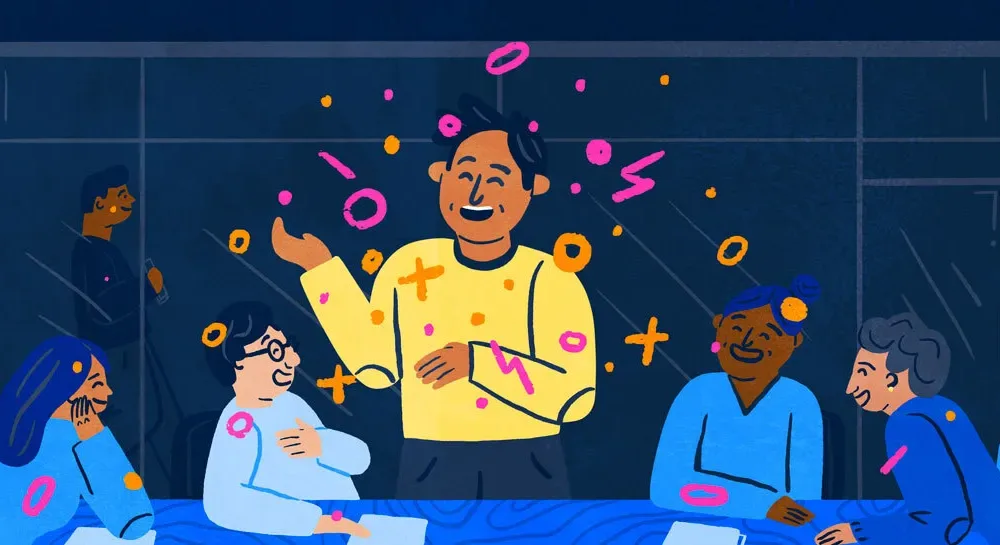Laughter Therapy: Why Humor Is a Mental Health Booster.
They say laughter is the best medicine, and while the phrase has become cliché, modern science and psychology suggest it holds more truth than we might realize. In a world filled with deadlines, financial pressures, social tensions, and personal struggles, laughter can feel like a luxury. Yet, it is one of the most natural and powerful tools we have for reducing stress, lifting our spirits, and even improving our physical health.
They say laughter is the best medicine, and while the phrase has become cliché, modern science and psychology suggest it holds more truth than we might realize. In a world filled with deadlines, financial pressures, social tensions, and personal struggles, laughter can feel like a luxury. Yet, it is one of the most natural and powerful tools we have for reducing stress, lifting our spirits, and even improving our physical health.
The act of laughing isn’t just about expressing joy—it’s a complex physiological and psychological process that influences hormones, brain activity, and social connection. That’s why laughter therapy—a structured practice of using humor and laughter for healing—is gaining recognition in hospitals, workplaces, and mental health settings around the world.
This article explores why humor is such an effective mental health booster, how laughter therapy works, and how you can incorporate more of it into your daily life.
Table of contents
- Section 1: What Is Laughter Therapy?
- Section 2: The Science of Laughter
- Section 3: Laughter and Mental Health
- Section 4: The Social Power of Humor
- Section 5: Practical Ways to Incorporate Laughter Therapy
- Section 6: Humor at Work
- Section 7: Laughter Therapy in Healthcare
- Section 8: Barriers to Humor and How to Overcome Them
- Section 9: Real-Life Stories of Healing Through Laughter
- Section 10: The Deeper Meaning of Humor
- Conclusion: Choosing Laughter Daily
Section 1: What Is Laughter Therapy?
Laughter therapy (sometimes called laughter yoga, humor therapy, or gelotology) is a therapeutic approach that uses intentional laughter to promote psychological and physical well-being. Unlike spontaneous laughter, laughter therapy is often simulated first—through exercises, breathing, and playful activities—until it becomes genuine.
Core Principles of Laughter Therapy:
- Your body doesn’t know the difference between fake laughter and real laughter; both produce similar physiological benefits.
- Laughter is contagious, so group settings amplify the effect.
- Laughter promotes mind-body harmony, reducing stress hormones and stimulating mood-elevating chemicals.
Pioneered in the 1990s by Dr. Madan Kataria in India, laughter yoga has since spread to more than 100 countries, with laughter clubs, workshops, and therapy sessions bringing people together in the name of humor and healing.
Section 2: The Science of Laughter
To understand laughter as a mental health booster, we need to look at what happens inside the body and brain when we laugh.
Hormonal Shifts:
- Reduces cortisol: Laughter lowers stress hormone levels, which helps us feel calmer.
- Boosts endorphins: The body’s natural painkillers and mood enhancers.
- Increases dopamine and serotonin: Neurotransmitters that regulate mood and ward off depression.
Neurological Effects:
- Activates the limbic system, the brain’s emotional center.
- Engages both hemispheres: creativity, problem-solving, and logical thinking improve.
- Enhances brain plasticity, helping us adapt and cope with change.
Physical Benefits:
- Improves blood flow and cardiovascular health.
- Relaxes muscles, easing tension.
- Strengthens the immune system.
In short, laughter is a whole-body workout for your emotional and physical resilience.
Section 3: Laughter and Mental Health
Mental health struggles—such as stress, anxiety, and depression—can make life feel heavy. Humor lightens that load.
How Laughter Helps:
- Stress Relief: Even a few minutes of laughter lowers blood pressure and heart rate.
- Anxiety Reduction: It disrupts cycles of overthinking and worry.
- Depression Support: Humor therapy can be a complementary treatment alongside counseling or medication.
- Resilience Building: Laughter increases psychological flexibility, helping people bounce back from challenges.
Clinical Evidence:
- A study published in the Journal of Alternative and Complementary Medicine found that participants in laughter yoga sessions reported significant decreases in anxiety and depression symptoms.
- Hospitals increasingly use clown therapy for children undergoing medical treatments, reducing fear and boosting morale.
Humor doesn’t erase life’s challenges—but it changes our relationship to them.
Section 4: The Social Power of Humor
Beyond individual benefits, laughter is one of the most powerful social bonding tools. Shared humor builds trust, strengthens relationships, and reduces feelings of isolation—an important factor in mental health.
Social Benefits:
- Encourages teamwork in workplaces.
- Strengthens family bonds.
- Improves conflict resolution by diffusing tension.
- Provides a sense of belonging in group laughter therapy sessions.
Humans are wired for connection, and laughter is one of the fastest ways to create it.
Section 5: Practical Ways to Incorporate Laughter Therapy
The good news is you don’t need a certified therapist to start using laughter as a wellness tool. Here are some strategies:
1. Laughter Yoga Exercises
- Start with deep breathing and gentle stretches.
- Engage in simulated laughter exercises (e.g., “ha-ha-ha” chants, playful eye contact).
- Allow genuine laughter to emerge naturally.
2. Daily Humor Rituals
- Watch a short comedy clip in the morning.
- Keep a “humor playlist” of shows, podcasts, or stand-up routines.
- Share funny memes with friends.
3. Social Laughter
- Join a laughter club in your city.
- Host a “laughter break” at work.
- Play lighthearted games with family.
4. Mindful Humor
- Learn to laugh at yourself instead of criticizing yourself.
- Reframe mistakes with humor.
- Keep a “humor journal” of funny things that happen during the day.
Section 6: Humor at Work

Workplaces are often serious environments, but integrating humor boosts morale, creativity, and collaboration.
- Leaders who use humor effectively are perceived as more approachable and trustworthy.
- Team-building with humor increases engagement and reduces burnout.
- Workplace laughter therapy sessions are being adopted by corporations to reduce stress and improve productivity.
Humor, when inclusive and respectful, is a leadership superpower.
Section 7: Laughter Therapy in Healthcare
Hospitals and care facilities are incorporating humor therapy because of its impact on patient outcomes.
- Clown Doctors: Used in pediatric wards to reduce children’s anxiety.
- Geriatric Care: Laughter therapy helps elderly patients improve mood and cognitive function.
- Chronic Illness Management: Humor improves pain tolerance and coping mechanisms.
Medical environments can be intimidating—laughter humanizes the experience.
Section 8: Barriers to Humor and How to Overcome Them
Not everyone finds it easy to laugh, especially during difficult times.
Common Barriers:
- High stress or depression suppresses laughter.
- Cultural differences affect what is considered “funny.”
- Fear of being judged for silly behavior.
Overcoming Barriers:
- Start small with light chuckles and breathing exercises.
- Engage with uplifting content rather than dark humor.
- Practice in a safe group environment where laughter is encouraged.
Laughter may not erase pain, but it can sit alongside it and provide relief.
Section 9: Real-Life Stories of Healing Through Laughter
Story 1: Cancer Recovery
Maria, a cancer patient, joined weekly laughter yoga sessions. She reported feeling stronger, less anxious, and more hopeful—even during chemotherapy.
Story 2: Workplace Burnout
A tech team introduced 10-minute laughter breaks twice a week. Within three months, employee stress levels decreased, and team collaboration improved.
Story 3: Elderly Loneliness
At a nursing home, residents who attended laughter therapy groups showed lower rates of depression compared to those in traditional activity programs.
These stories remind us that laughter is more than amusement—it’s a healing force.
Section 10: The Deeper Meaning of Humor
On a philosophical level, humor teaches us perspective. It reminds us that we can choose to approach life lightly, even when challenges weigh us down. Laughter does not deny difficulty—it acknowledges it and says, “I can still find joy.”
In spiritual traditions, laughter is often seen as a form of liberation. It frees us from ego, seriousness, and rigid thinking. It returns us to a childlike state of openness and play.
Conclusion: Choosing Laughter Daily
Laughter therapy is not about ignoring problems. It’s about strengthening the mind and body to face them with resilience, creativity, and hope. Humor acts as both shield and medicine: it protects our mental health and heals us in the process.
Incorporating more laughter into your life doesn’t require drastic changes. It’s as simple as watching something funny, joining a group session, or allowing yourself to laugh at life’s imperfections.
When you laugh, you create a ripple—lightening your own burden and spreading joy to those around you. In a world that often feels heavy, that ripple matters.
So today, give yourself permission to laugh. It’s one of the most powerful, affordable, and accessible mental health boosters we have.
When Smiles Become Medicine
Laughter isn’t just a reaction—it’s a remedy. It lightens the heart, clears mental fog, releases emotional tension, and reminds us that joy is still available, even on the hardest days. Here are more uplifting reads that show how positivity, perspective, and mindful living can boost emotional well-being:
• Breaking Free from Overthinking: Find Your Zen – Learn how to quiet your racing thoughts and welcome calm, clarity, and lightness back into your life.
• Calm Is a Superpower: Transform Your Life with Inner Peace and Clarity – Discover how emotional balance helps you respond with strength, confidence, and resilience.
• Mindfulness and Inner Freedom: How Awareness Unlocks Peace and Clarity – A gentle guide to releasing heavy emotions and reconnecting with joy, presence, and ease.
Want to Sprinkle More Joy Into Your Day?
Explore Funny Quotes – A delightful collection of humor-filled lines to lift your spirits, spark laughter, and brighten even an ordinary moment.
The Positivity Collective
The Positivity Collective is a dedicated group of curators and seekers committed to the art of evidence-based optimism. We believe that perspective is a skill, and our mission is to filter through the noise to bring you the most empowering wisdom for a vibrant life. While we are not clinical professionals, we are lifelong students of human growth, devoted to building this sanctuary for the world.
